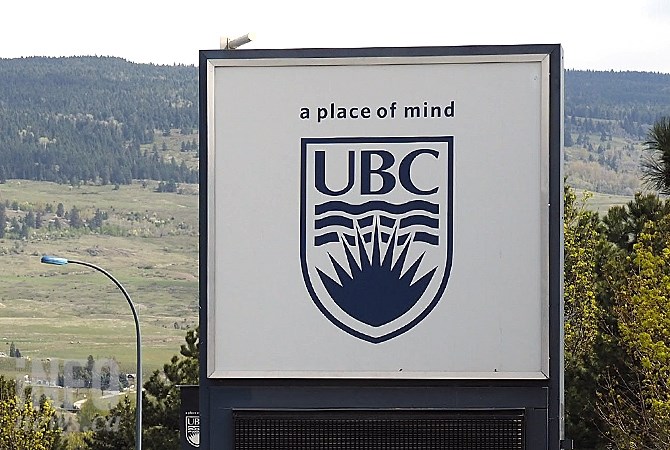
(ADAM PROSKIW / iNFOnews.ca)
February 09, 2024 - 7:00 PM
The federal government announced in January that international student enrolment will be reduced by more than one-third for the next two years. The impact of this decision on the Okanagan’s foreign students is yet to be revealed.
Students travel from at least 115 different countries to study in the Okanagan and currently make up close to a quarter of UBC Okanagan’s student population.
Arcanjo Pedro, a student from Hong Kong, believes international students can be beneficial additions to smaller cities like Kelowna.
“Maybe there is an argument to be made about universities taking in international students just for the money. But there is also a huge argument to be made about how international students contribute positively to the economy,” Pedro told iNFOnews.ca. “Small to mid-sized cities could really use educated young labour that universities can potentially inject into the population.”
The federal government and Canada’s Immigration Minister say the cap will limit the pressure on housing and help tackle exploitative institutions that charge international students large fees and fail to deliver on education or services.
For Pedro, it's unfair that all prospective international students should bear the consequences of the exploitative practices of bad actor colleges and universities.
“If there are malpractices, why not have the Ministry of Education open up investigations?” Pedro said. “Why cut admission all together?”
UBC is still awaiting further direction from the province and says it is too early to determine the potential impacts of the study permit caps.
“UBC values international students and their important contributions to UBC’s academic and research mission,” the university said in an emailed statement to iNFOnews.ca. “They bring unique and diverse perspectives to the learning environment and campus community. Canada is competing globally for this talent and we need to ensure that international students continue to consider Canada as a destination of choice.”
Affordable housing has been an ongoing issue for the university with both of it's campuses located in two of the most expensive cities in the country.
Over the last 12 years, the university has invested $670 million into building 5,500 new student residence beds on the Vancouver and Kelowna campuses, and has committed to building another 4,800 beds in the next 10 to 15 years.
“We also understand the unique pressure some students face in finding housing and the pressure of demand on rentals,” UBC said.
For Pedro, international students shouldn’t take all the blame for the province’s housing crisis.
“I think if there is a general rhetoric about how international students are messing up the housing market, it’s a rhetoric we have to be careful about,” he said.
High rental prices aren't the only financial hurdles facing foreign students.
They pay hefty tuition fees at any academic institutions and especially UBC.
One year of full time study at UBC can cost up to $61,743 for international students. But that's not the only cost.
International students must also pay $237 for their first three months of medical cover and $75 a month thereafter for MSP. On top of that there is a $50 housing application fee and $63 per term fee for a university bus pass.
By comparison, domestic students can pay up to $9,604 per year of full time study, less than a sixth of the international fees.
However, for Pedro, expensive fees come hand in hand with attending a renowned North American university.
"The housing on campus is expensive, that's a fact. But so is everywhere else in Kelowna," Pedro said. "And its UBC. The top universities in North America are expensive. So in a sense, I feel like everyone knows what they signed up for."
To contact a reporter for this story, email Georgina Whitehouse or call 250-864-7494 or email the editor. You can also submit photos, videos or news tips to the newsroom and be entered to win a monthly prize draw.
We welcome your comments and opinions on our stories but play nice. We won't censor or delete comments unless they contain off-topic statements or links, unnecessary vulgarity, false facts, spam or obviously fake profiles. If you have any concerns about what you see in comments, email the editor in the link above. SUBSCRIBE to our awesome newsletter here.
News from © iNFOnews, 2024